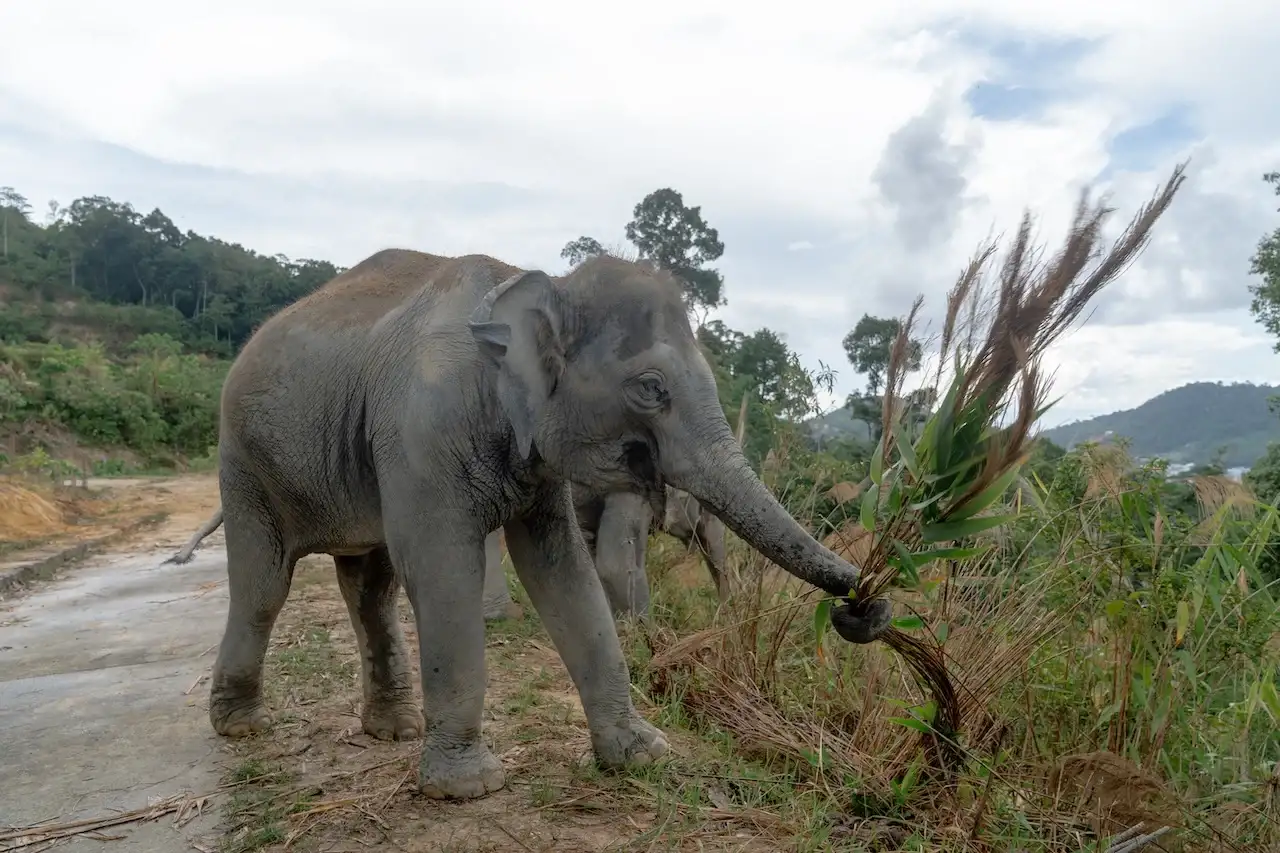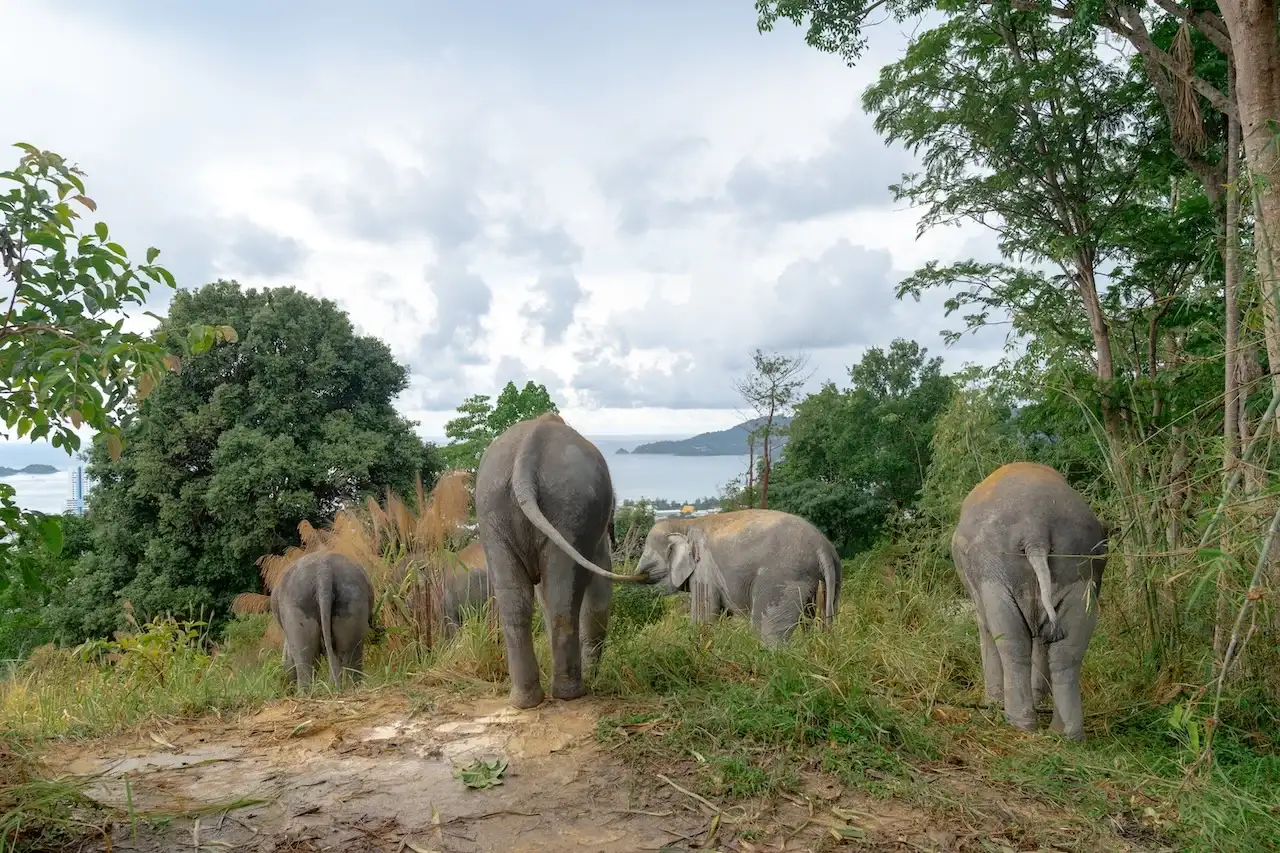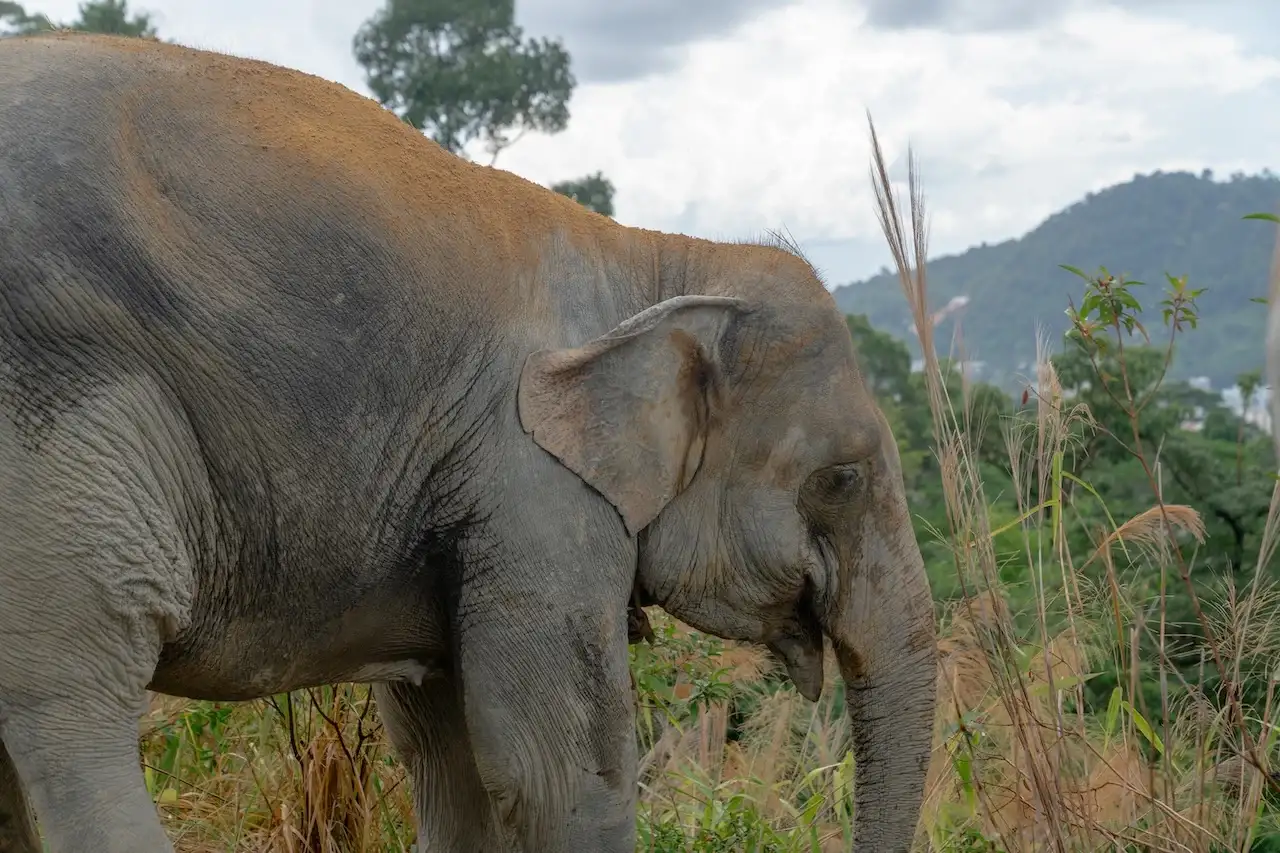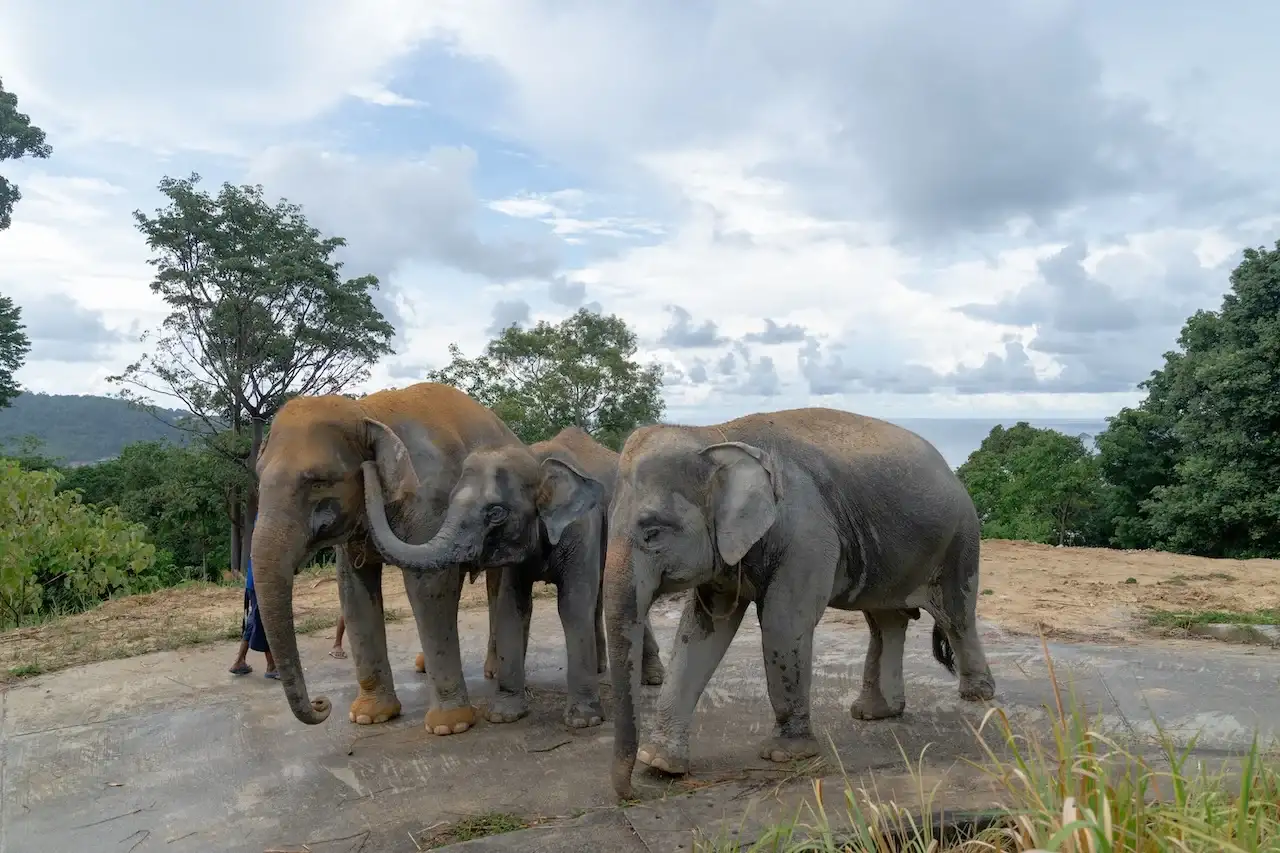The Day I Became an Elephant Caretaker
There are certain travel days that blur together — airport lines, crowded beaches, generic resorts. And then there are days that etch themselves so deeply into your memory that you carry them forever. For me, one of those days was the morning I traded my backpack for a machete, rolled up my sleeves, and spent the day as an elephant caretaker at Hill Tribe Elephant Village in Patong, Phuket.

Morning at the Sanctuary
The day began with the smell of fresh-cut banana trees. Our small group was handed machetes, not for adventure sports, but for something far more meaningful: harvesting elephant food. Elephants can eat over 150 kilograms of food every day, and much of it comes from the surrounding forest. With the guidance of local caretakers — men and women from hill tribe families — we chopped thick stalks of banana trunks into manageable chunks, stacking them into piles that would soon be devoured.
It was sweaty, messy work. My hands blistered, and my shirt clung to my back, but every swing of the blade reminded me that caring for elephants is a job of love, not luxury.
“If you want to know elephants, feed them. If you want them to trust you, work for them.” — Caretaker at Hill Tribe Elephant Village
Rolling Herbal Balls
Next came a task that felt more like cooking than caretaking. We were given baskets of tamarind, rice, and salt — the ingredients for herbal medicine balls. Tamarind is packed with vitamins, rice adds bulk, and a pinch of salt provides essential minerals. Together, they become a daily supplement for elephants, especially the older ones who need a little extra care.
We mashed everything together by hand, the sticky mixture coating our fingers, then rolled the paste into balls the size of small apples. When it was time to feed them, Tad Daow approached, her trunk curling forward. I placed a ball gently into her grasp, and she popped it into her mouth with a sigh of satisfaction. It felt less like feeding an animal and more like sharing a gift.

Walking With Giants
Caretaking isn’t just about feeding. It’s about walking, observing, and making sure the elephants have space to be themselves. That afternoon, we followed Aussie, the youngest of the herd, as she explored the forest. She tugged at vines, scratched her side against a tree, and playfully splashed dust across her back. Watching her reminded me of a carefree teenager testing boundaries, full of energy and mischief.
Mon Caan, on the other hand, walked slowly, often pausing to sniff the air before moving on. His quiet presence was grounding. I realized that being a caretaker isn’t about controlling elephants — it’s about reading their moods, respecting their space, and keeping a watchful eye without interfering.
Lessons From the Mahouts
Throughout the day, the caretakers shared stories. Many of them had grown up with elephants, inheriting the role of mahout from their fathers and grandfathers. They spoke of the challenges of modern tourism, the importance of conservation, and the delicate balance of tradition and change. What impressed me most was their philosophy: elephants are not workers, they are family.
“In the past, elephants worked for our families. Now, our families work for them.” — Hill Tribe Elder

A Different Kind of Travel
By the end of the day, my body ached, my clothes were stained, and my shoes were covered in mud. But my heart felt lighter than it had in months. I hadn’t just visited a tourist attraction — I had contributed, in some small way, to the daily rhythm of elephant life.
This wasn’t about ticking off a bucket list. It was about connection. About realizing that ethical travel isn’t just avoiding harm, but actively doing good. That day taught me that when you care for elephants, they care for you in return — not with words, but with trust.

Walking Away Changed
As the sun dipped behind the hills, I sat in the forest clearing, watching the herd settle into their evening routine. Mali stood close to Tad Daow, Aussie kicked up dust, and Chan Horm reached lazily for the last stalk of sugarcane. It struck me that these moments — quiet, unscripted, real — were the essence of what travel should be.
I didn’t just become an elephant caretaker for a day. I became a student, a witness, and perhaps even a friend. And that, more than any selfie or souvenir, is what I’ll carry home forever.
Becoming an elephant caretaker is not about what you give to them — it’s about what they give back to you: patience, humility, and the reminder that freedom is priceless.